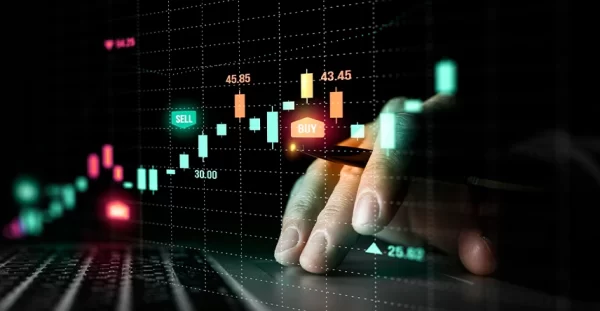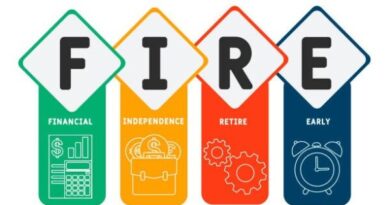Navigating the Uncharted Waters of Forex Trading: Insights, Innovations, and What Lies Ahead
The Foreign Exchange (Forex) market is more than just numbers on a screen—it’s a pulse that beats across the globe, 24 hours a day, shaping economies and fortunes. With a staggering daily trading volume surpassing $6 trillion, the Forex market is the epicenter of global finance. But what fuels this colossal market? How do traders chart their course through its unpredictable waves? In this exploration, we’ll dive deep into the essence of Forex trading, uncover emerging trends, and peer into the crystal ball to see what the future holds.
Forex Trading: The Heartbeat of Global Finance
Forex trading isn’t just about exchanging currencies; it’s about understanding the intricate dance between nations, economies, and geopolitical events. Traders engage in a complex ballet, pairing currencies like the USD/JPY or EUR/GBP, each step influenced by the ebb and flow of global events. Unlike stock markets confined to traditional business hours, Forex never sleeps. It’s a continuous global conversation where every whisper of economic data or political unrest can cause seismic shifts.
Mastering the Art of Forex: Strategies that Define Success
Success in Forex isn’t born from luck—it’s crafted through precision, strategy, and foresight. Here’s how top traders navigate these turbulent waters:
- Chart Whisperers (Technical Analysts):
These traders don’t just see charts; they read them like a story. Through patterns and indicators such as Fibonacci retracements, MACD, and candlestick formations, they predict the market’s next move with the precision of a chess master. - The Economists (Fundamental Analysts):
For these traders, numbers tell a bigger story. They dive into economic reports, interest rates, and GDP growth, decoding the health of economies and forecasting currency strength. Their decisions are grounded in the realities of fiscal policy and international trade. - The Rapid Fire Traders (Scalpers):
Scalping is the art of seizing opportunities in the blink of an eye. These traders operate on the razor’s edge, making numerous trades within minutes, capturing small profits that accumulate into significant gains. It’s a strategy that demands sharp reflexes and nerves of steel. - The Strategists (Swing Traders):
Patience is their virtue. Swing traders hold positions for days, riding the waves of market momentum. They combine the best of both worlds—technical insights and fundamental analysis—to catch medium-term trends and maximize their returns. - Guardians of the Vault (Risk Managers):
In Forex, the difference between success and failure often comes down to risk management. These traders employ stop-loss orders, diversify their portfolios, and manage position sizes to protect their capital, ensuring they live to trade another day.
The Winds of Change: Emerging Trends in Forex Trading
The Forex market is in a state of constant evolution, shaped by innovations and shifting paradigms:
- The Rise of the Machines (Algorithmic Trading):
Algorithms are redefining the Forex landscape, executing trades at lightning speed and processing data beyond human capacity. These AI-driven strategies are becoming the new standard, offering precision and efficiency like never before. - Trading at Your Fingertips (Mobile Trading):
The market has gone mobile. With advanced apps and platforms, traders can now manage their portfolios, execute trades, and stay connected to global markets anytime, anywhere. This accessibility is leveling the playing field, allowing more people to engage with Forex. - The Social Trading Revolution:
Learning from the best is now just a click away. Social trading platforms enable traders to follow and mimic the strategies of seasoned professionals, creating a community-driven approach to Forex. It’s a trend that’s opening doors for novices while fostering a collaborative trading environment. - Regulation 2.0:
As Forex trading grows, so does the need for transparency and trust. Stricter regulations are being introduced to protect traders and maintain market integrity. These changes are essential for sustaining a healthy trading environment in the long run. - Crypto Meets Forex:
The fusion of cryptocurrencies with traditional Forex trading is transforming the market. Traders now have the option to exchange Bitcoin, Ethereum, and other digital currencies alongside conventional currencies, offering a new layer of opportunity and complexity.

Gazing into the Horizon: The Future of Forex Trading
As we sail into the future, the Forex market will continue to evolve in response to technological advancements and global economic shifts. Artificial intelligence, blockchain technology, and enhanced regulatory frameworks will redefine how traders interact with the market. The line between human and machine trading will blur, offering new opportunities for those who adapt and innovate.
Yet, in the face of all this change, one truth remains: Forex trading is a journey, not a destination. It’s an endless pursuit of knowledge, strategy, and adaptation. The traders who succeed will be those who navigate this journey with curiosity, resilience, and a keen sense of the uncharted waters that lie ahead.
The Final Word: Keep Your Compass Ready
In the world of Forex, there’s no finish line—only new horizons to explore. Whether you’re a seasoned trader or a curious newcomer, the key to success lies in your ability to adapt, learn, and grow. The Forex market is vast, ever-changing, and full of potential. So, as you set sail on your trading journey, remember to keep your compass ready, your eyes on the charts, and your mind open to the endless possibilities that await.
FAQs:
1. What Sets Forex Trading Apart from Other Financial Markets?
Forex trading is unique in its 24/7 operation and its unparalleled global scale. Unlike stock markets with fixed hours, Forex runs continuously across different time zones, making it a truly international platform. With over $6 trillion traded daily, its liquidity is unmatched, enabling traders to execute large transactions without significantly moving prices.
2. Is Forex Trading Beginner-Friendly?
Forex trading can be beginner-friendly if approached with the right mindset and preparation. While it offers exciting opportunities, it also comes with significant risks. New traders should start by educating themselves, practicing on demo accounts, and gradually building their confidence and strategy before trading with real money.
3. How Do Currency Pairs Function in Forex?
In Forex, currencies are traded in pairs like USD/EUR or JPY/GBP. The first currency listed (the base currency) is compared to the second (the quote currency). Traders profit by predicting whether the base currency will rise or fall relative to the quote currency.
4. What Is Leverage in Forex Trading, and Why Is It Important?
Leverage in Forex allows traders to control large positions with a small amount of capital. For instance, with 100:1 leverage, you can control $100,000 with just $1,000 of your own money. While leverage can magnify profits, it also increases potential losses, making proper risk management essential.
5. Can Forex Trading Be Done Part-Time?
Absolutely! Forex trading’s flexibility allows it to fit into virtually any schedule. Since the market operates around the clock, part-time traders can choose the most convenient times to trade, such as during the peak activity of the London or New York sessions, making it a viable option for those balancing other commitments.
6. What Common Pitfalls Should New Forex Traders Avoid?
New traders often stumble by over-leveraging, trading without a clear plan, or allowing emotions to drive decisions. Other common mistakes include not setting stop-loss orders, chasing after missed opportunities, and neglecting to keep a trading journal. Success in Forex requires discipline, strategic planning, and ongoing education.
7. How Does Economic News Affect Forex Markets?
Economic news can dramatically influence Forex markets, often triggering sharp price movements. Key economic indicators—like interest rate changes, employment statistics, and GDP reports—can sway currency values. Traders who stay tuned to economic events and adjust their strategies accordingly can capitalize on these market shifts.
8. Can You Really Make a Living from Forex Trading?
Making a living from Forex trading is possible but challenging. It demands a high level of skill, experience, and capital. Professional traders often spend years mastering their craft, and while the potential for profit exists, so does the risk of significant loss. A realistic approach, with thorough planning and risk management, is critical for those considering Forex as a primary income source.
9. How Important Is Psychology in Forex Trading?
Psychology is crucial in Forex trading. Emotions like fear, greed, and overconfidence can lead to poor decision-making and losses. Successful traders develop strong mental discipline, sticking to their strategies even in volatile markets. Managing emotions and maintaining a level-headed approach is vital for long-term success in Forex.
10. What Should I Look for When Choosing a Forex Broker?
Choosing a Forex broker involves considering factors like regulatory oversight, trading platform quality, spreads, and customer support. A reputable broker should be regulated by a recognized authority, offer competitive pricing, and provide a user-friendly trading environment. Checking reviews and testing out a demo account can also help you make an informed choice.
11. How Can I Best Learn Forex Trading?
The best way to learn Forex trading is through a blend of education and hands-on practice. Start with online courses, webinars, and reading materials to build a strong foundation. Then, apply what you’ve learned in a demo account to gain practical experience. Engaging with a trading community or seeking mentorship can also accelerate your learning process.
12. Why Do So Many Forex Traders Fail?
Many Forex traders fail due to a lack of preparation, unrealistic expectations, and inadequate risk management. Some dive into trading expecting quick profits without fully grasping the complexities involved. Others may have knowledge but fail to control their emotions or stick to a consistent strategy. Success in Forex requires a well-rounded approach, blending education, discipline, and a long-term perspective.




